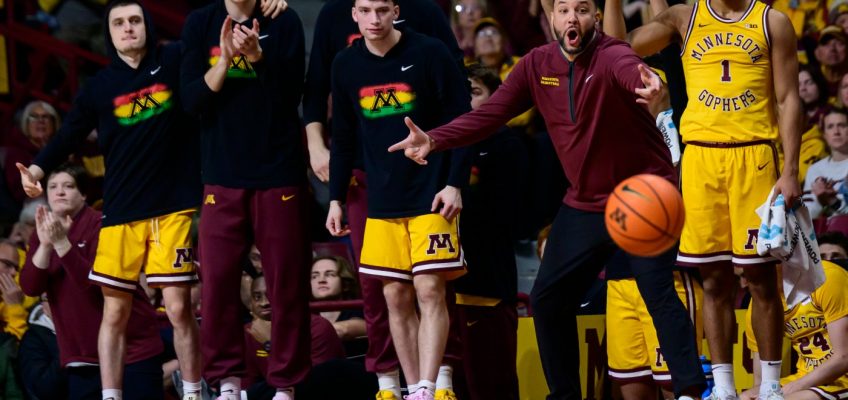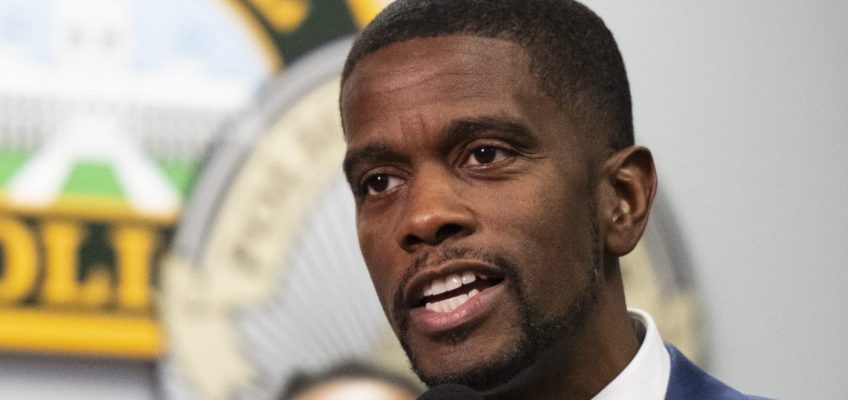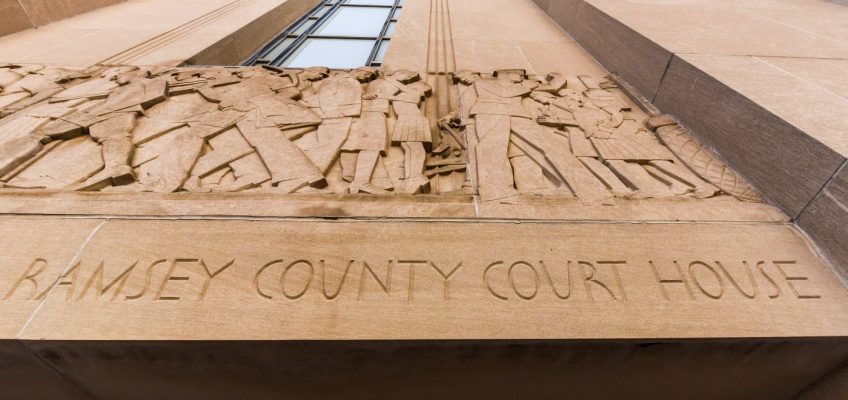Detroit defenseman Simon Edvinsson scored goals in the second and third periods as the Minnesota Wild built an early lead then saw it slip away versus a revenge-minded Red Wings team.
With the Wild up by two, Detroit got a pair of quick goals in the middle period, then Edvinsson’s seeing-eye shot through traffic was the eventual game-winner in Detroit’s 3-2 victory. After Minnesota had won on the Red Wings’ home rink on Saturday, the teams split their season series.
Marco Rossi and Jakub Lauko scored first-period goals for Minnesota, which has been a .500 team at Xcel Energy Center this season while sporting the NHL’s best road record. The Wild had won two in a row at home prior to the 4 Nations Face-Off break, but fell to 13-13-1 at home with their latest loss.
The Wild got 13 saves from Filip Gustavsson, as he fell to 22-13-3 as the goalie of record this season.
For the Red Wings, they mounted a furious comeback after falling behind. Goalie Cam Talbot had 22 saves for Detroit, which has been one of the Eastern Conference’s hottest teams following a midseason coaching change. They are making a push for their first playoff appearance since 2016.
Minnesota saw its three-game winning streak snapped.
After winning despite playing from behind in their final game before the 4 Nations break, and in their first game back in action on Saturday, the Wild took a different approach on Tuesday, jumping out to a 2-0 lead via strong special teams and opportunistic offense.
Detroit missed a golden opportunity to take the crowd out of the game early when Marco Kasper clanked the right goalpost behind Gustavsson, and the Wings had an early lead in shots. Then they took a penalty for delay of game, and the Wild pounced.
On the ensuing man advantage, Matt Boldy got a long shot through to Talbot, who made a pad save but couldn’t control the rebound. Rossi, posted just outside the crease, got two whacks at the puck and slid the second one over the line, extending his goal-scoring streak to three games.
In the opposite crease, Gustavsson had a stellar first period with 10 saves, including two on point-blank attempts.
Minnesota came within inches of extending its lead on a power play early in the second, but Talbot denied Vinnie Hinostroza on the doorstep.
And then in what seemed like the blink of an eye, although in reality it took three minutes, Detroit tied the game on goals by Vladimir Tarasenko and Edvinsson. The latter came via a bomb of a slap shot from the blue line that fooled Gustavsson.
Lauko, who has had an injury-plagued season and was back in the lineup after missing the previous three games, doubled the lead with a soft shot that slipped between Talbot’s skates. It was the third goal of the season for Lauko, who has missed 24 games due to injury.
One leftover from the first game of this two-game home-and-home series versus the Red Wings was Detroit announcing that center Andrew Copp was out for the season, and likely to miss four to six months after having surgery to repair a torn pectoral tendon.
Late in the second period of the Wild’s 4-3 overtime win at Little Caesars Arena on Saturday, Wild defenseman Brock Faber was dropped by a hard but clean check from Wings forward Alex DeBrincat, which touched off a scuffle. Copp came in hard and delivered a forearm to the head of Boldy, injuring himself in the process.
The Wild will close out February with a trip to the mountains, facing Utah on Thursday and Colorado on Friday in back-to-back road games.
Detroit Red Wings goaltender Cam Talbot (39) blocks a shot during the third period of an NHL hockey game against the Minnesota Wild, Tuesday, Feb. 25, 2025, in St. Paul, Minn. (AP Photo/Abbie Parr)
Minnesota Wild goaltender Filip Gustavsson (32) and defenseman Brock Faber (7) defend against a shot by Detroit Red Wings left wing Lucas Raymond (23) during the first period of an NHL hockey game, Tuesday, Feb. 25, 2025, in St. Paul, Minn. (AP Photo/Abbie Parr)
Minnesota Wild goaltender Filip Gustavsson stops a shot by Detroit Red Wings left wing Lucas Raymond (23) during the first period of an NHL hockey game, Tuesday, Feb. 25, 2025, in St. Paul, Minn. (AP Photo/Abbie Parr)
Related Articles
Kirill Kaprizov isn’t close, and Joel Eriksson Ek is on injured reserve
Wild forward Matt Boldy impresses on the international stage
For Wild’s Brock Faber, this reunion after international play was a relative breeze
When the dust clears, Wild find a way win in Detroit
Wild’s John Hynes returned from 4 Nations with new tricks in his bag




